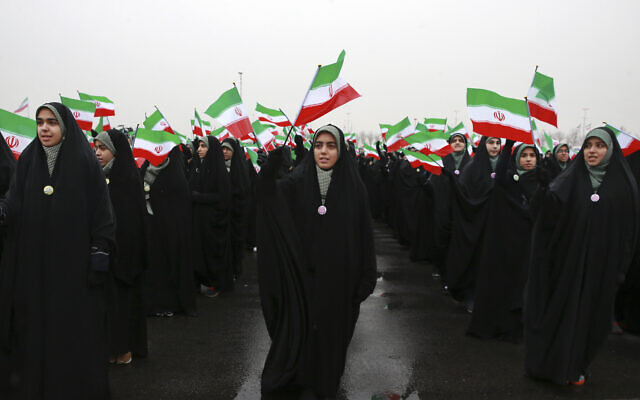TEHRAN, Iran – Iran’s deputy interior minister announced Tuesday the first arrests in the mysterious poisoning of schoolgirls that has gripped the country for months.
“Based on the intelligence and research measures of the intelligence agencies, several people have been arrested in five provinces and relevant agencies are conducting a full investigation,” Majid Mirahmadi told state television.
More than 5,000 Iranian schoolchildren have been affected by the poisoning since late November, according to a lawmaker investigating the cases, mainly targeting female pupils.
The mysterious poison has gripped Iran, sparking a wave of anger and calls for action from authorities.
They have also sparked international concern and Western calls for an independent investigation, particularly after the death of Iranian Kurd Mahsa Amini, 22, after her arrest for allegedly violating Iran’s strict dress code triggered nationwide protests. The first cases were reported soon after. For ladies.
Scores of schools have been affected, with students suffering symptoms ranging from shortness of breath to nausea and dizziness after reporting an “unpleasant” smell in the school premises. Some have been treated in hospitals.

Female students wave Iranian flags during a ceremony to mark the 40th anniversary of the Islamic Revolution at Azadi, or Freedom, Square in Tehran, Iran, February 11, 2019. (Vahid Salemi/AP)
“Twenty-five provinces and about 230 schools have been affected, and more than 5,000 schoolgirls and boys have been poisoned,” Mohammad-Hasan Asfari, a member of the parliamentary fact-finding committee, told the ISNA news agency on Monday.
“Various tests are being conducted to identify the type and cause of the poisoning. There is no specific information yet on the type of poison used.”
Calling the poisoning an “unforgivable crime”, Iran’s Supreme Leader Ayatollah Ali Khamenei on Monday ordered the perpetrators to be tracked down “without mercy”.
President Ibrahim Raisi last week tasked the interior ministry with providing constant updates on the investigation.
In its latest update on Monday, the ministry said, “Less than five per cent of the students transferred to the hospital were found to have stimulants that worsened their health.” “Fortunately, so far, no toxic or dangerous substances have been found in any of the students transferred to the medical centers.”
The latest case – reported by the ISNA news agency – involved 40 students, all of them female, in the troubled southeastern city of Zahedan.
The White House on Monday called for a “credible independent investigation” into the poisoning.
A month after the Amini protests, which later spread to universities and schools, the first cases were reported in Qom, Iran’s Shiite clerical capital, in late November.
On Tuesday, Tehran’s prosecutor Ali Salehi warned “those who spread lies and rumors” about the poison that “they will be dealt with decisively and legally,” the judiciary’s Mizan online website reported.
